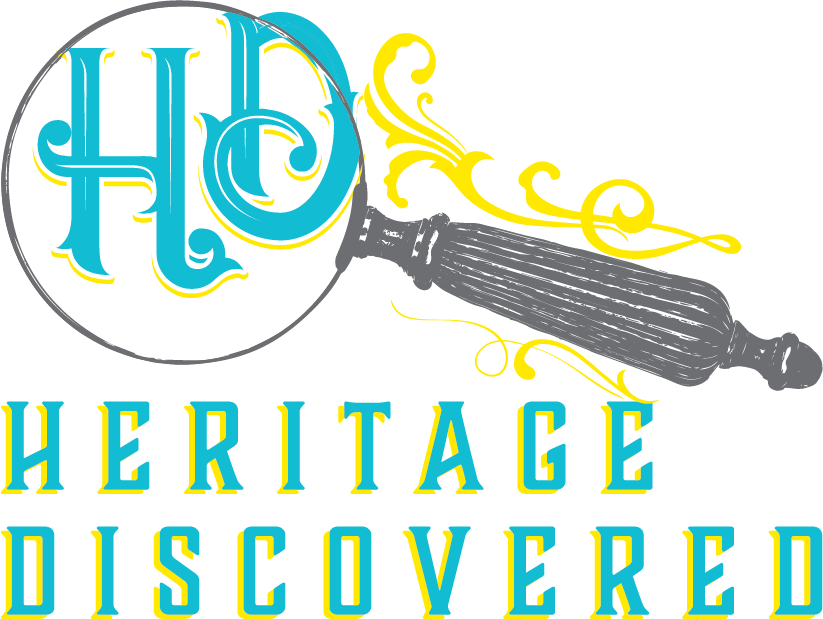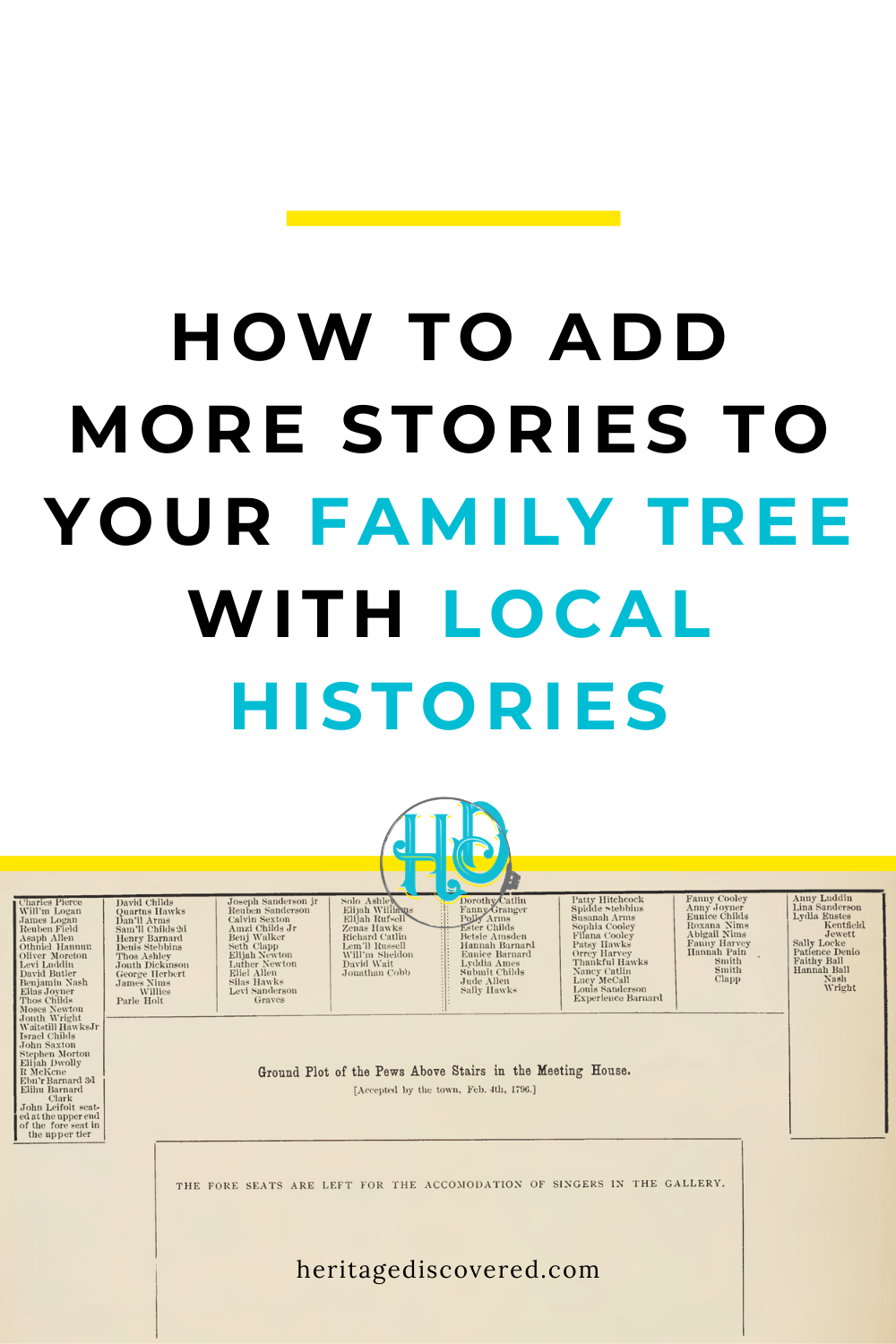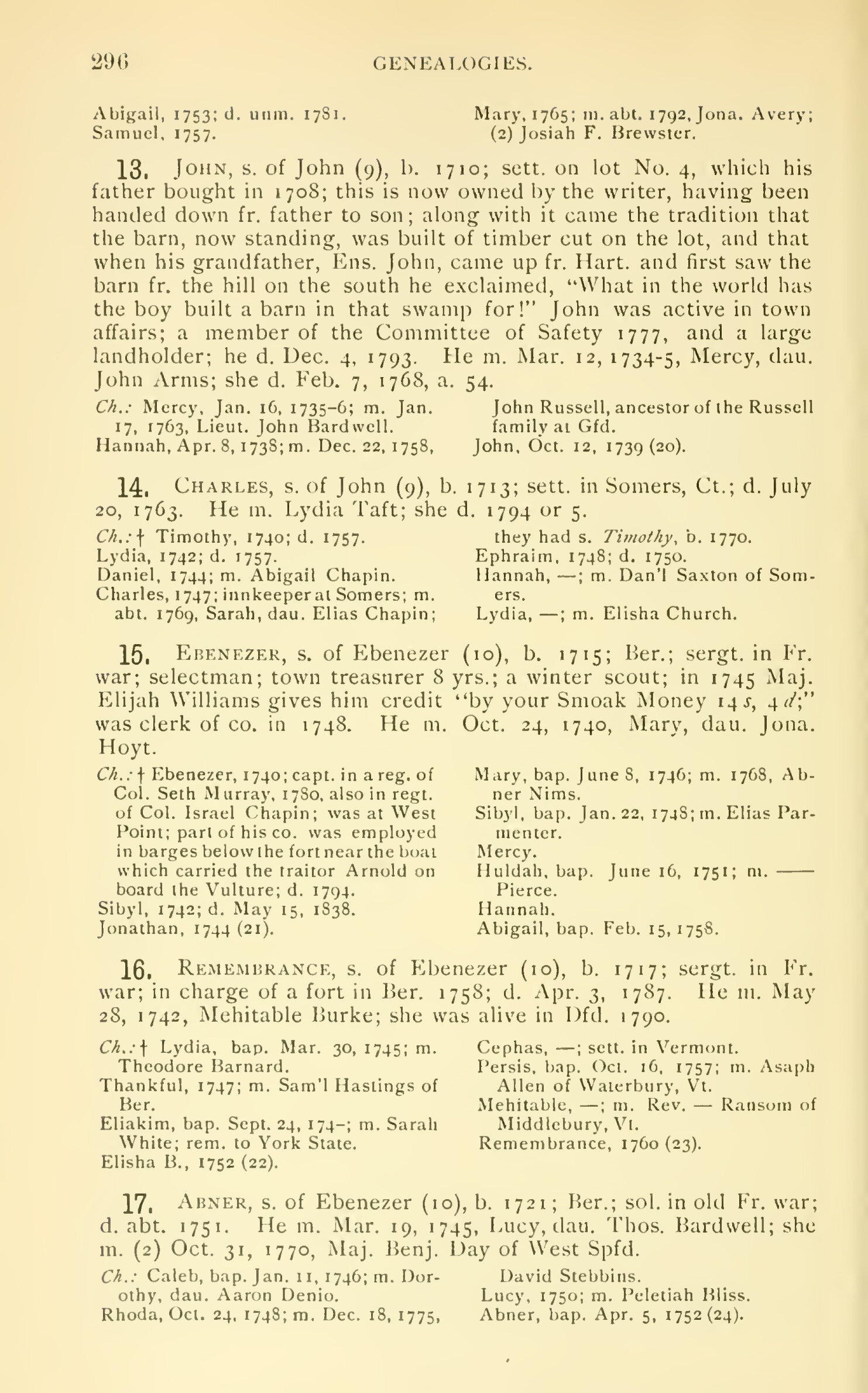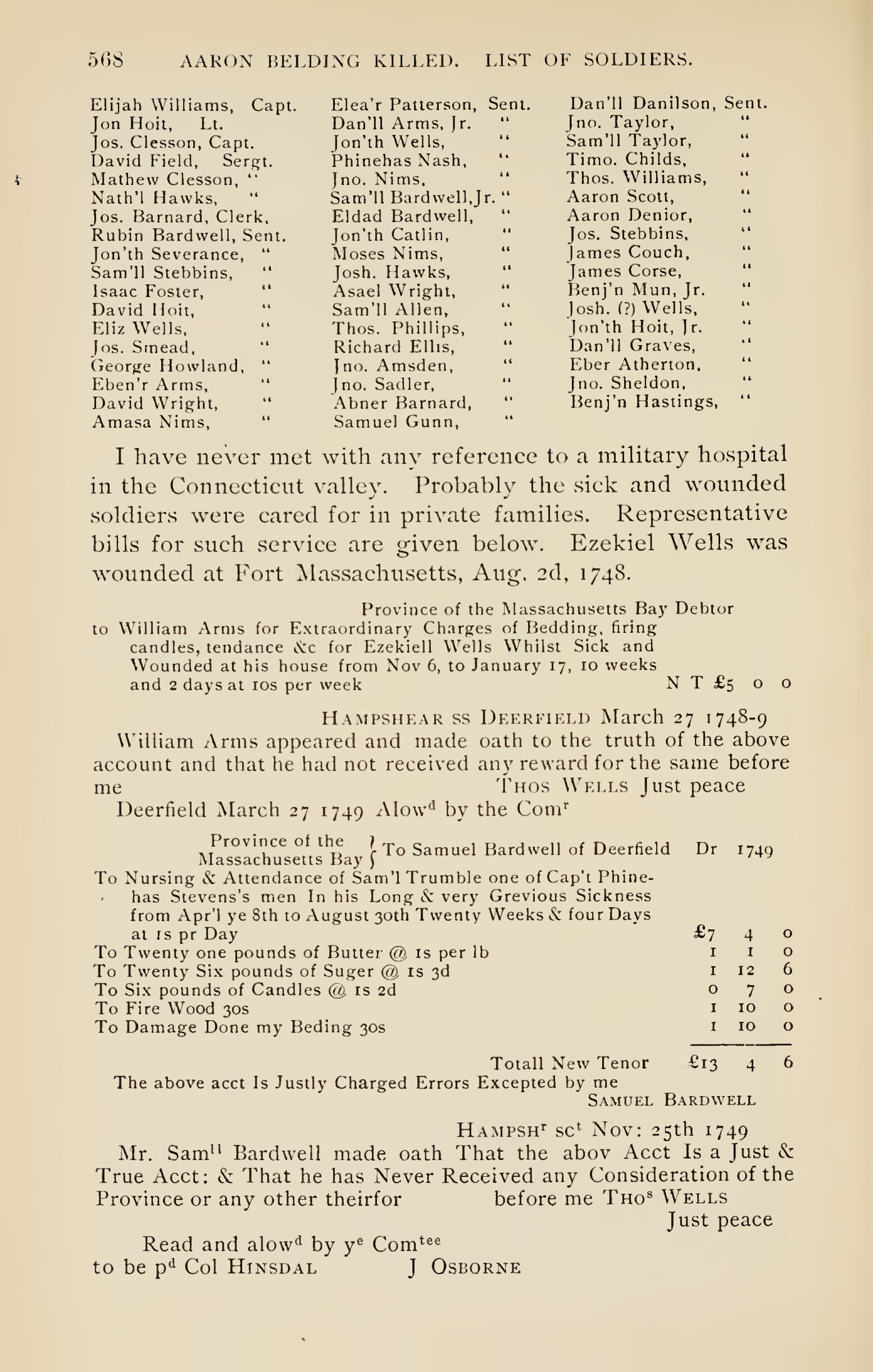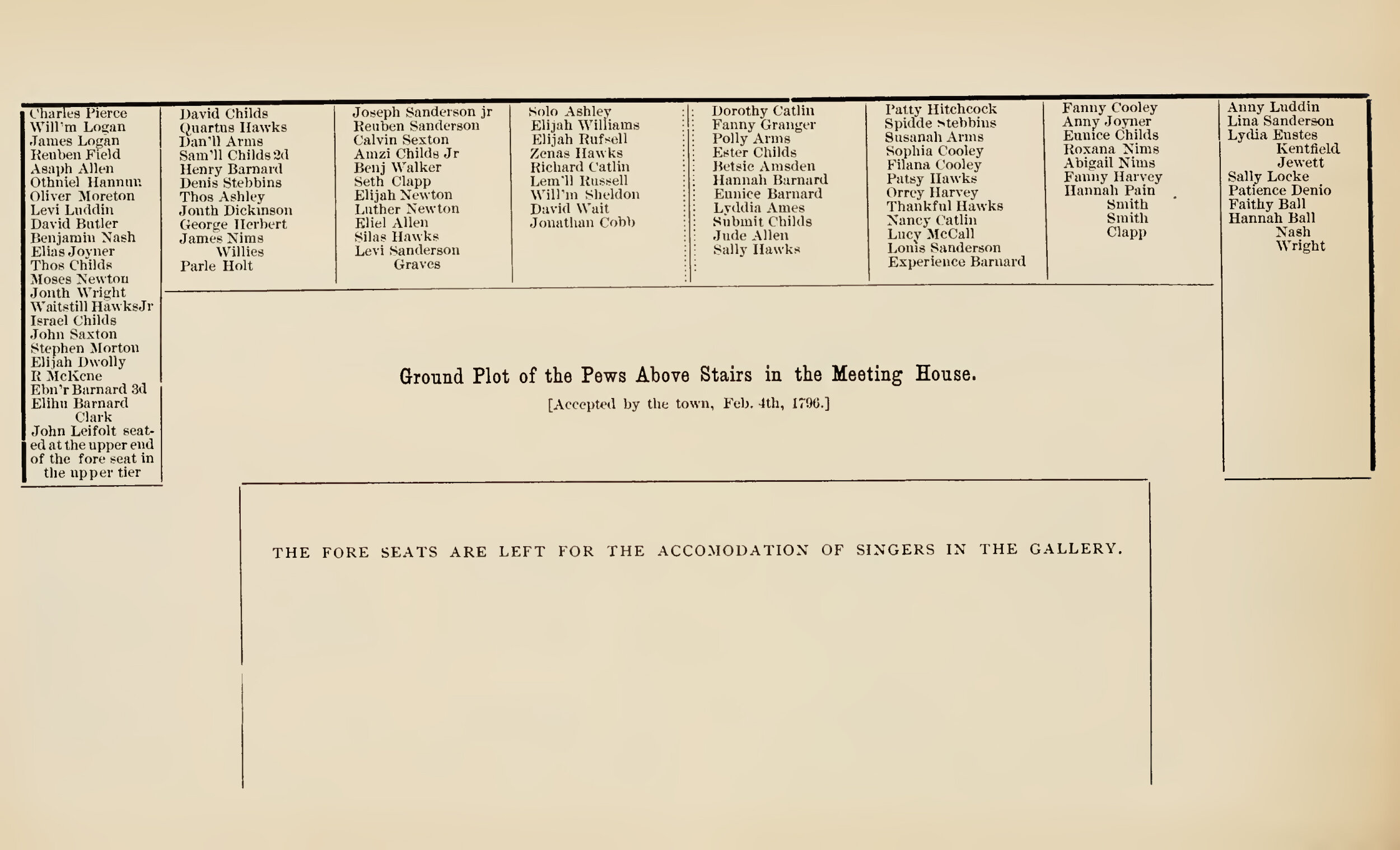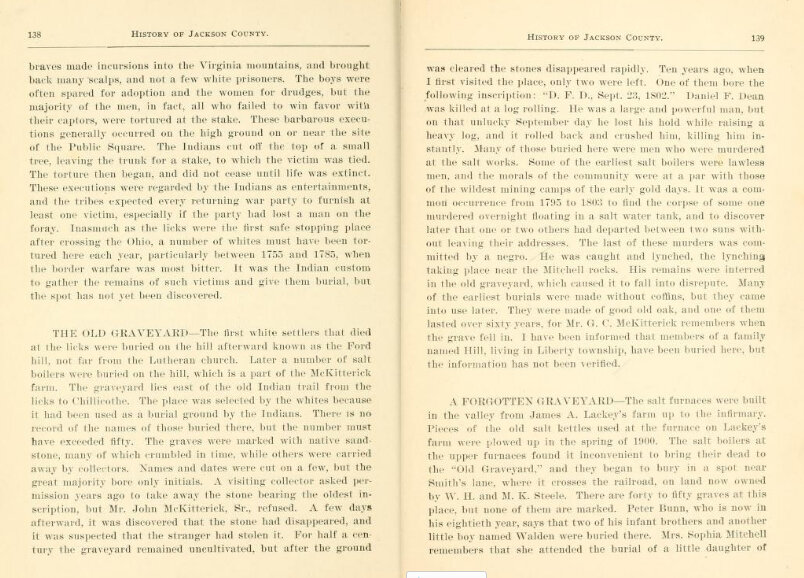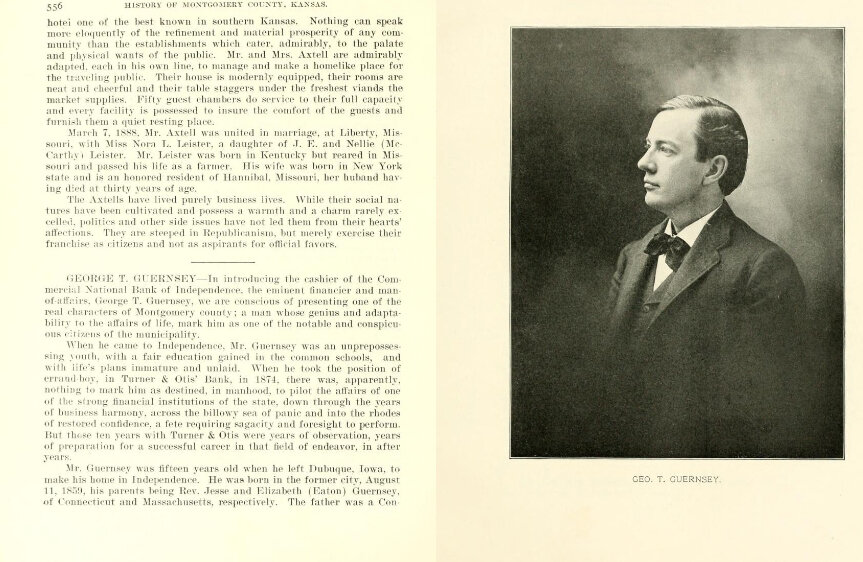Why Local History Books Are More Important Than You Think For Genealogy
*This post may have affiliate links, which means I may receive commissions if you choose to purchase through links I provide (at no extra cost to you). All opinions remain my own.
What got me into genealogy was looking for my grandfather's birth parents. He was given up for adoption to a couple in a nearby town.
One year, I decided to track down the birth family as a present for my dad. I was lucky and found the likely couple pretty quickly in censuses and got their vital records.
I wanted to learn more but had no idea where to look or what was possible.
This was almost 20 years ago. I didn’t know then that there were how-to books on genealogy, and the internet was nothing like today, right?
Fortunately, I had a genealogy library in the city I lived in. I would visit and browse all the shelves for the places my family came from.
It was there that I learned about town and county history books.
Flipping through them, I found my family mentioned in a few of them and was able to uncover clues that led me to more sources.
One had details about my family I wouldn't have known otherwise, like that someone was born at sea and how children were split up after their father deserted them but reunited as adults.
Source: Sheldon, George. A History of Deerfield, Massachusetts: the times when the people by whom it was settled, unsettled and resettled. Deerfield, Massachusetts, 1896 via Internet Archive
What are town and county histories?
Town and county history books were popular in the late 1800s and beyond, but they continue to be written and republished to this day.
They describe the community, like what local businesses existed and when schools and churches began. They talk about the early history and physical description of the place. Information about roads, stagecoach routes, and railroads give clues about transportation and development.
And, happily, for us, some include genealogies. One town history that I own has nearly 400 pages of genealogies.
These weren’t only for larger, more populated areas, either. Histories were also published for small towns, making them even more valuable as these places that may not have other resources like directories or newspapers available. Two of the towns my family lived in had about 2000 people but still have published histories.
Related post: Why You Should Research Your Collateral Ancestors
How town and county history books can help your genealogy
How do local history books and genealogy go together?
With local histories, you can discover both direct information about your ancestors and learn about the community they lived in.
Depending on the book, there could be a lot of information to be found about your family.
There could be biographies and portraits. There could be genealogies, and not only of the more prominent residents.
It’s not uncommon to find lists of civil servants like judges, postmasters, sheriffs, and town clerks. I’ve found lists of men qualified to vote in town meetings, and more.
Soldiers are also often listed and the wars they served in. One town history I have has transcripts of bills people sent for taking care of wounded soldiers, naming the soldier and what care they were given. (Seriously though, how did they use 21 pounds of butter in 20 weeks??)
Source: Sheldon, George. A History of Deerfield, Massachusetts: the times when the people by whom it was settled, unsettled and resettled. Deerfield, Massachusetts, 1896 via Internet Archive
A book I have for Deerfield, Massachusetts points out the town's history of slavery and names some slaves and slaveholders.
People's occupations and business partners could also be mentioned.
You can come across maps showing how towns were laid out, and plat maps or lists with descriptions of who lived at each address and who bought land from whom.
Like other earlier records, the names and stories of women are few and far between in these histories. But, women can be found in them, helping you to learn details like an address or which pew they had in the meeting house.
Source: Sheldon, George. A History of Deerfield, Massachusetts: the times when the people by whom it was settled, unsettled and resettled. Deerfield, Massachusetts, 1896 via Internet Archive
Be sure that whatever you do discover that you verify it. The book may not be accurate, and sources aren’t always cited, so you don’t know where the author found the information.
Knowing the community is also important to understanding the times your family lived in and giving context to their lives.
What were the living conditions? What resources – like schools, merchants, and churches – were available to them?
Did they have to travel to another town to attend the church of the religion they practiced? If so, how did they get there?
Were there natural disasters that affected them? My great grandmother told my dad a story about an enormous blizzard and how she had to climb out the second-story window to go out for supplies after days being stuck inside.
Did they have a library? What cemeteries existed and where were they located?
Source: Williams, Daniel Webster. A History of Jackson County, Ohio. Jackson, Ohio, 1900 via Internet Archive.
What fraternal organizations existed that your ancestor might have joined?
The prices of goods and labor may be described, giving you an idea of what was available to them and how much it cost.
Many of these histories have photos, so you can see how it might have looked when they lived there. Your ancestor’s house may even be pictured.
You can see how much valuable information can be packed into these pages!
All these factors can tell you what resources and events shaped their lives.
Related post: How To Care For Old Books
Source: Duncan, L. Wallace. History of Montgomery County, Kansas. Iola, Press of Iola Register, 1903 via Internet Archive.
Where can you find local history books?
There are a bunch of places online and offline that have local town and county histories, many of which are now in the public domain.
Online
eBay is a good place for local history books for sale. As I write this, there are over 4600 results on eBay for county and state histories.
Internet Archive has thousands of digitized copies to view for free
FamilySearch’s Digital Library is another site with thousands of digitized local histories
Google Books is another
Offline
Of course, not all are digitized and sometimes you want to look at the real-life, print version.
Print copies of local histories can be found in many different repositories.
Local public libraries
Local historical societies. Sometimes they sell reprints as well.
University libraries often have histories for not only the place they’re in but for all over the country.
State libraries and archives
Genealogy libraries like Allen County
Related post: Why You Need To Use A Research Log
